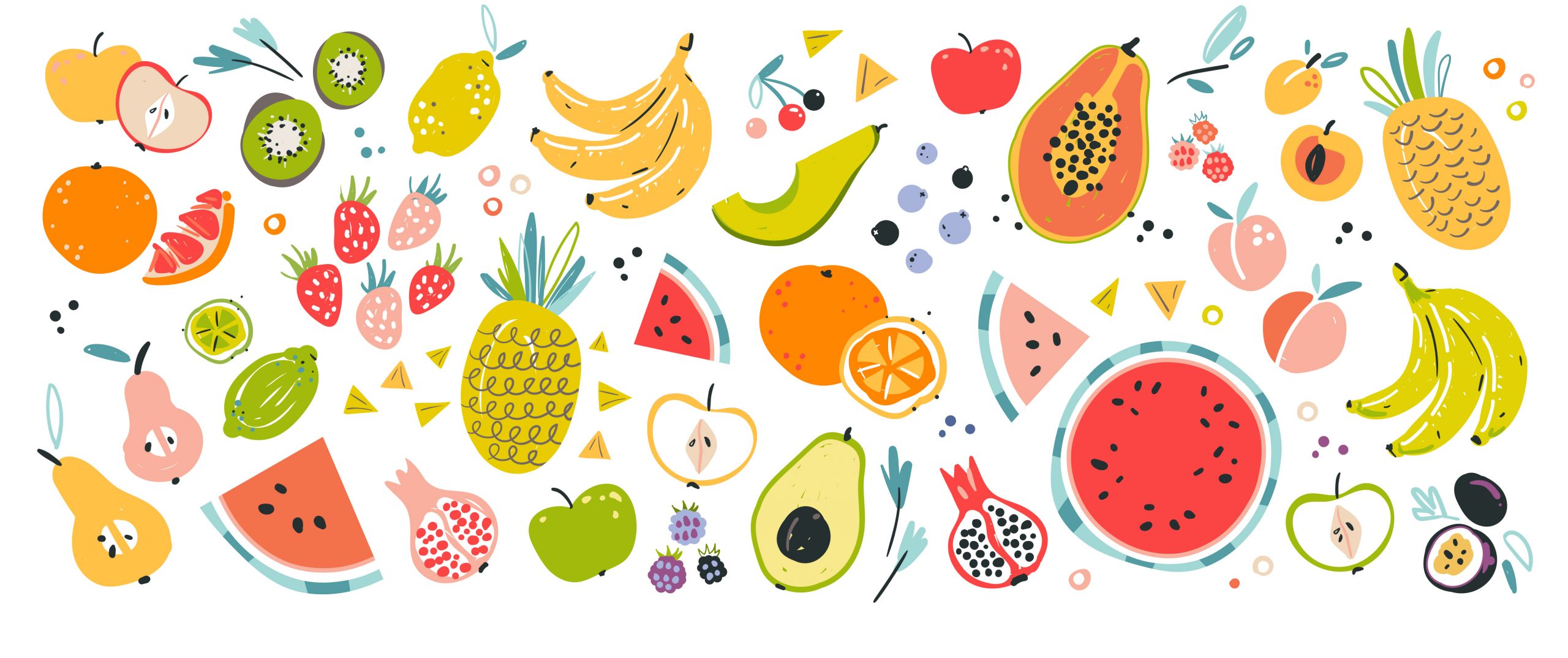- HOME
- SERVICES
- WHERE TO BEGIN
- LOCATIONS
- RESOURCES
- HEALTH PLAN SERVICES
- CAREERS
- EMPLOYEES

One Step to a Healthy Diet: Eat More Fruits!
Eating more fruit is an excellent way to improve overall health and reduce the risk of disease. Fruits are an excellent source of essential vitamins and minerals, and they are high in fiber. Fruits also provide a wide range of health-boosting antioxidants, including flavonoids.
Below are a list of eight fruits and their benefits to add to your diet. Remember: it is always best to actually eat the fruit itself, not just drink fruit juice which can be high in sugar and have less fiber and nutrients.
Peaches and nectarines: Packed with potassium
Everyone knows that bananas boast high amounts of potassium,
but two small peaches or nectarines have more of the essential mineral than one
medium banana, boosting nerve and muscle health and making them one of the
healthiest fruits. The skins, in particular, are rich in antioxidants and
insoluble fiber.
Pineapple: Powerful anti-inflammatory
Grilled, frozen, dried, or fresh, this sweet and tangy
tropical fruit is jam-packed with bromelain, an anti-inflammatory enzyme that
has been shown to reduce the risk of heart attacks and strokes.
Grapes: Heart healthy
As one of the world’s oldest and most abundant healthiest
fruits, grapes have been proven to ward off heart disease and high cholesterol,
thanks to high levels of the antioxidants quercetin and resveratrol. Each
little bulb is also a great source of potassium and iron, which prevent muscle
cramps and anemia. Stick with the purple or red kind, as they contain the
highest concentration of healthy compounds.
Kiwi: Loaded with vitamins
Beneath its fuzzy skin is a sweet fruit loaded with vitamins
C and E, both strong antioxidants that protect against cancer and promote eye
health. Kiwis are also low in calories and high in fiber, making them an ideal
snack. Because they can last up to four weeks when stored in the refrigerator,
they are a great to keep all year round.
Mangoes: Immunity boosters
Mangoes are becoming increasingly popular among
nutritionists due to their exceptionally high levels of beta-carotene, which
the body converts into vitamin A to promote bone growth and a healthy immune
system. Even more, these exotic treats are packed with more than 50 percent of
your daily vitamin C—that’s more than oranges provide.
Apples: Brain- and heart-healthy
One medium apple is low on calories but heavy on quercetin,
a powerful antioxidant that protects brain cell degeneration, which can lead to
Alzheimer’s disease. Adults who eat apples are less likely to develop high
blood pressure, according to one study. Apples can also lower cholesterol and
prevent colon cancer, as well as promote healthy teeth and weight loss. Don’t
forget to eat the skin, too—it’s especially rich in disease-fighting compounds
like flavonoids, which reduce the risk of heart disease.
Grapefruit: Vitamin C powerhouse
Although oranges are a great source of vitamin C,
grapefruits pack a bigger punch. Just half of a grapefruit contains nearly 50
percent of your daily vitamin C, as well as high levels of fiber, potassium,
and vitamin A. Studies have suggested that grapefruit can alleviate the
symptoms of arthritis and repair damaged or oily skin and hair.
Bananas: Healthy on-the-go snack
A banana is the perfect on-the-go snack, already wrapped and
full of potassium and fiber to promote long-lasting energy and keep you alert
all day long. And since it contains no fat or salt, bananas are a much
healthier snack option than a granola bar or bag of pretzels. Want to make your
bananas last longer? Here’s a trick: Store them in the refrigerator after
they’re ripe. Although the peel may turn brown, the fruit underneath will stay
delicious for three to five extra days.
Fruits come in all shapes and sizes, and different fruits
have different health benefits. For the best results, add a variety of fruits
to the diet.
Resource:
https://www.healthline.com/nutrition/20-healthiest-fruits#section1
